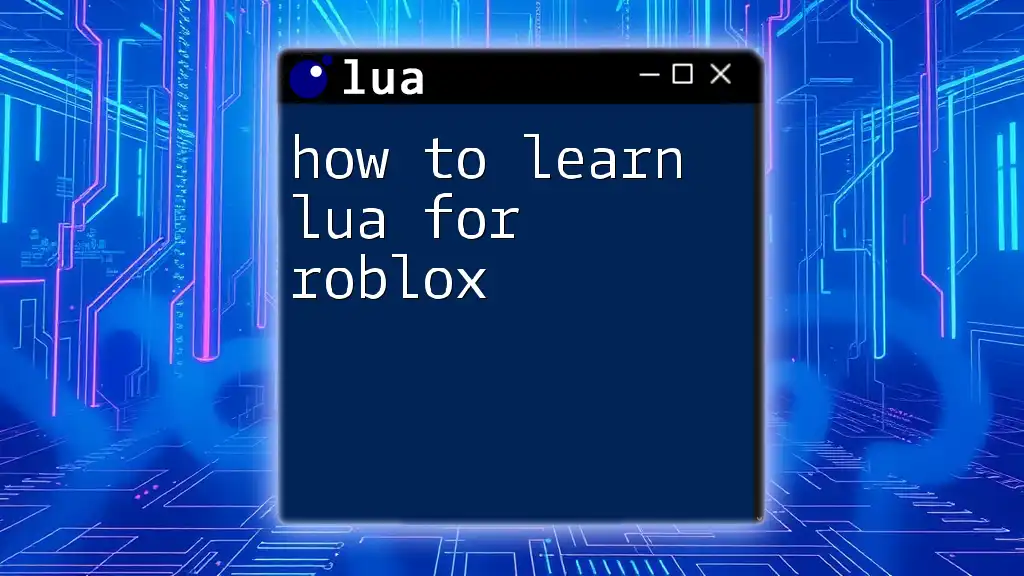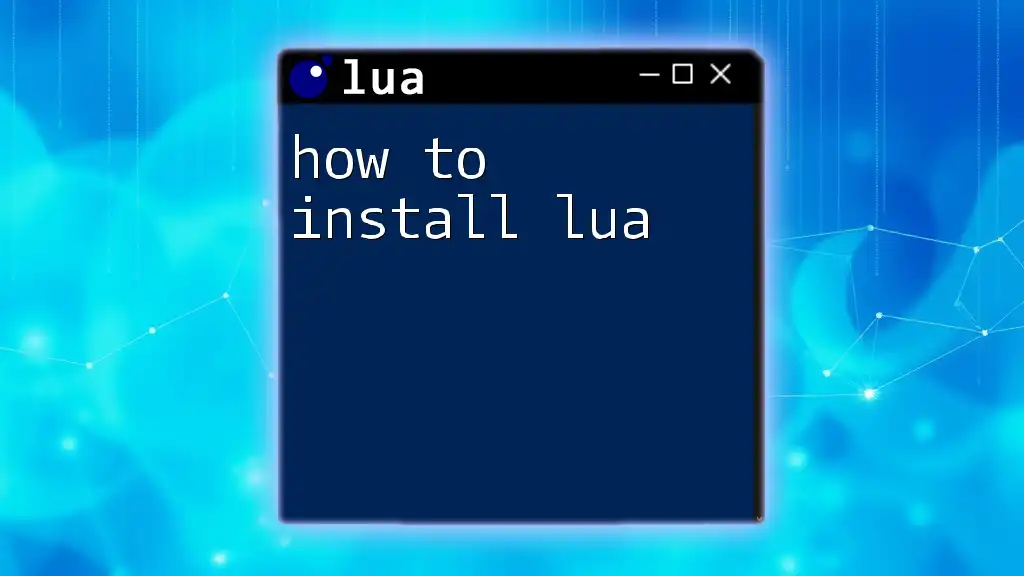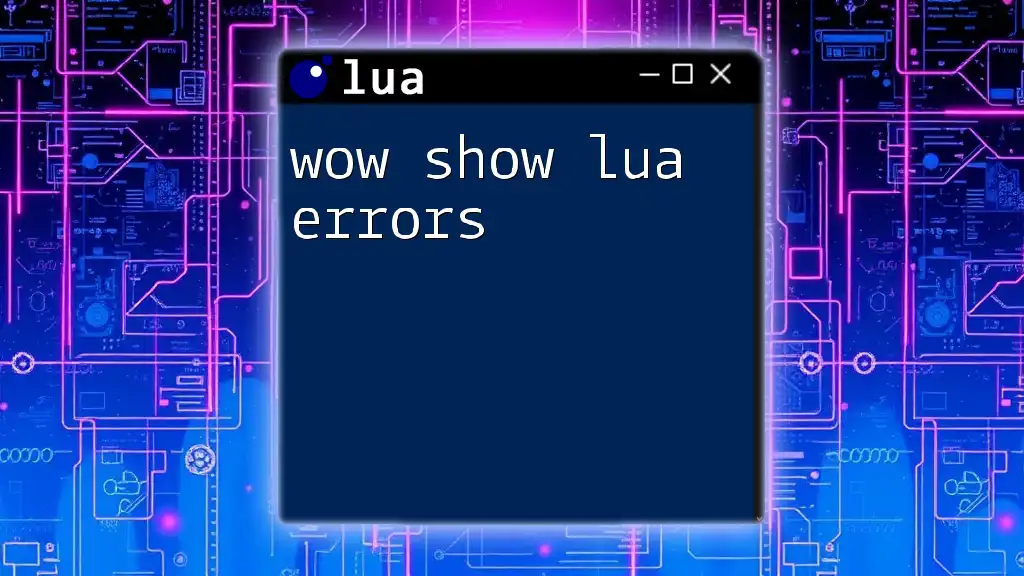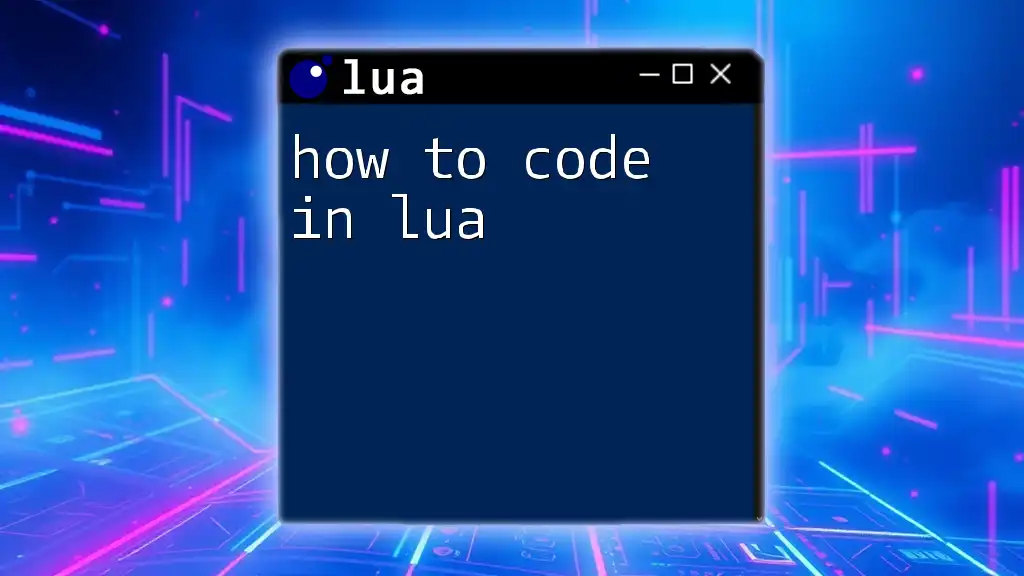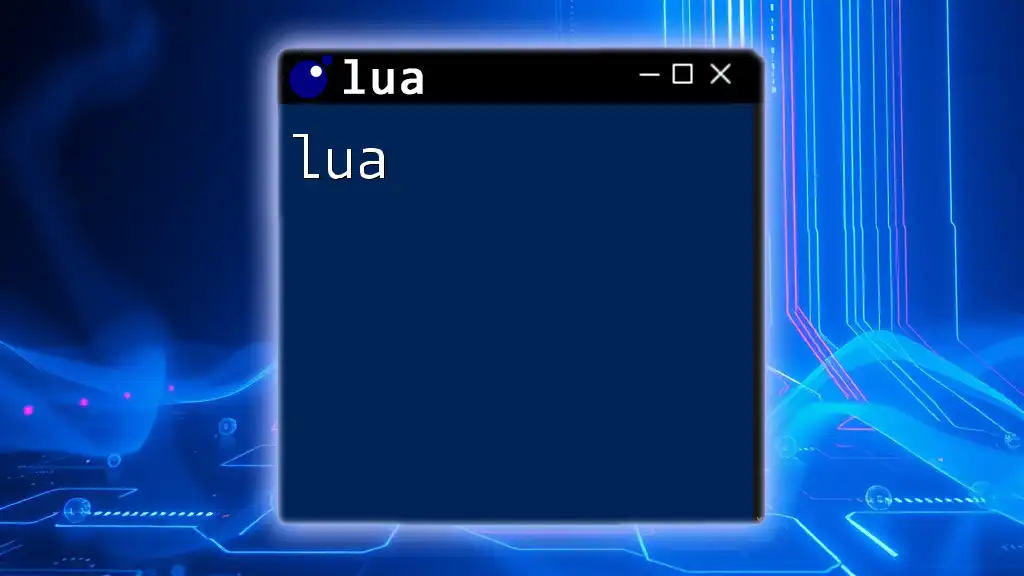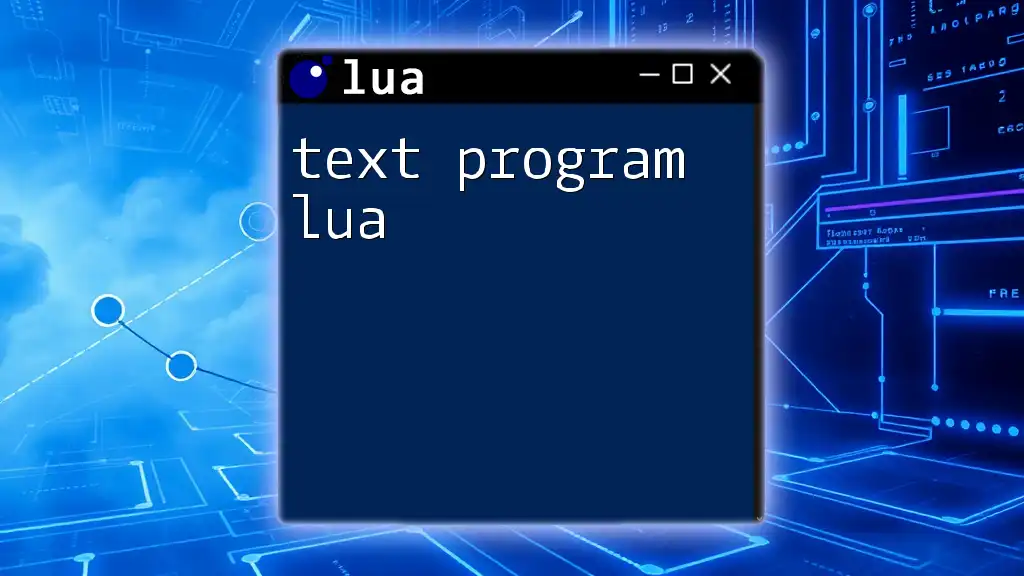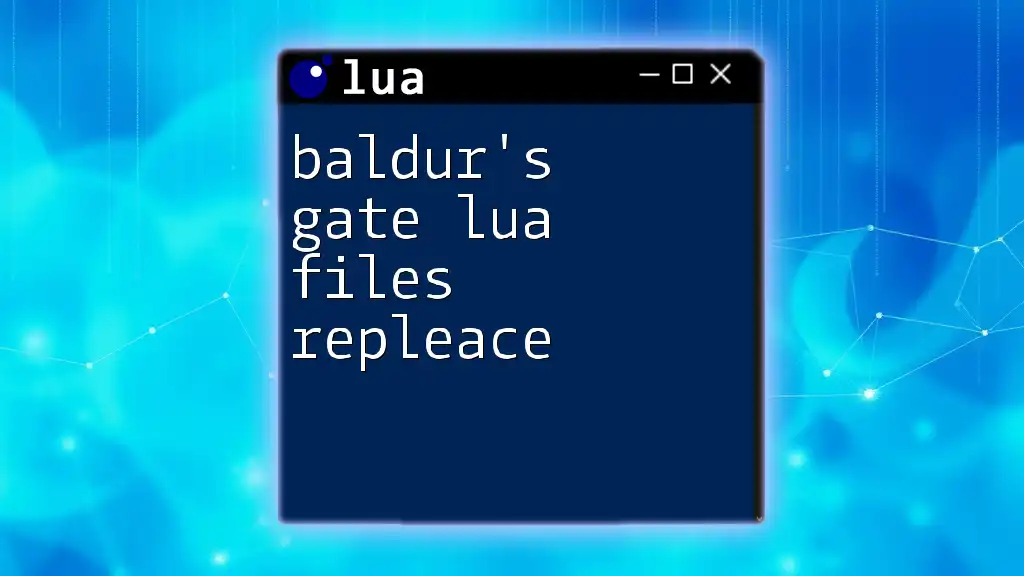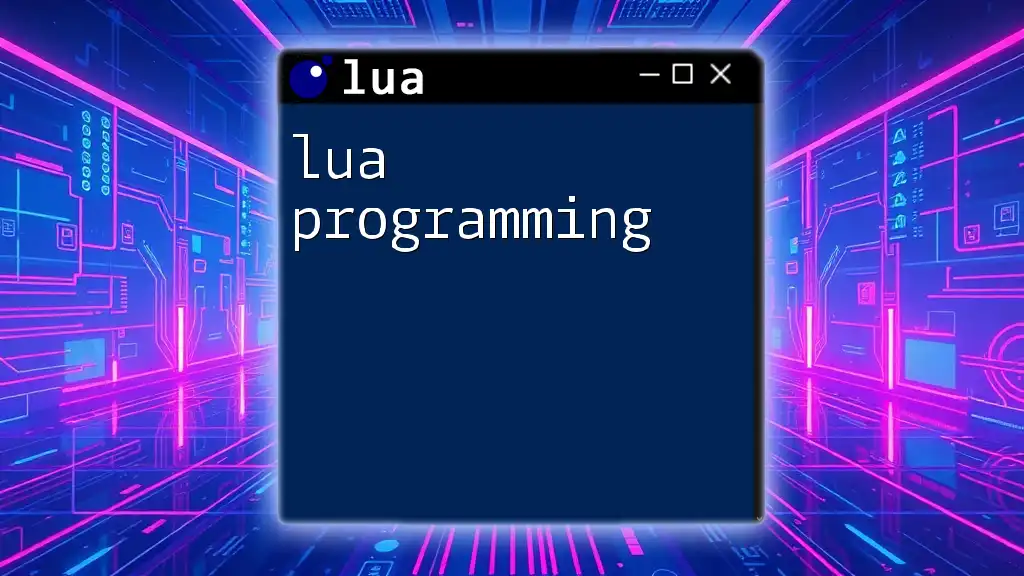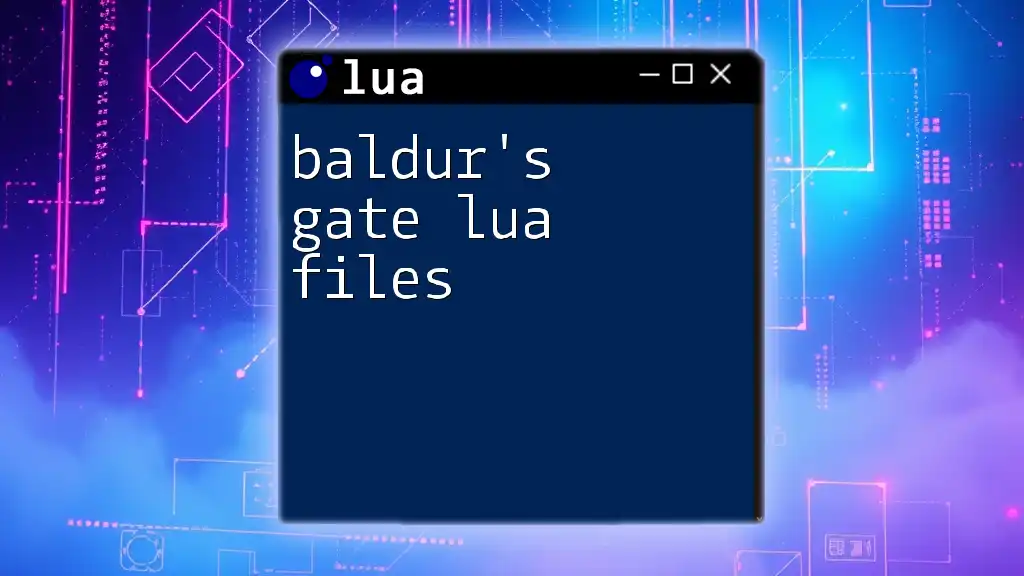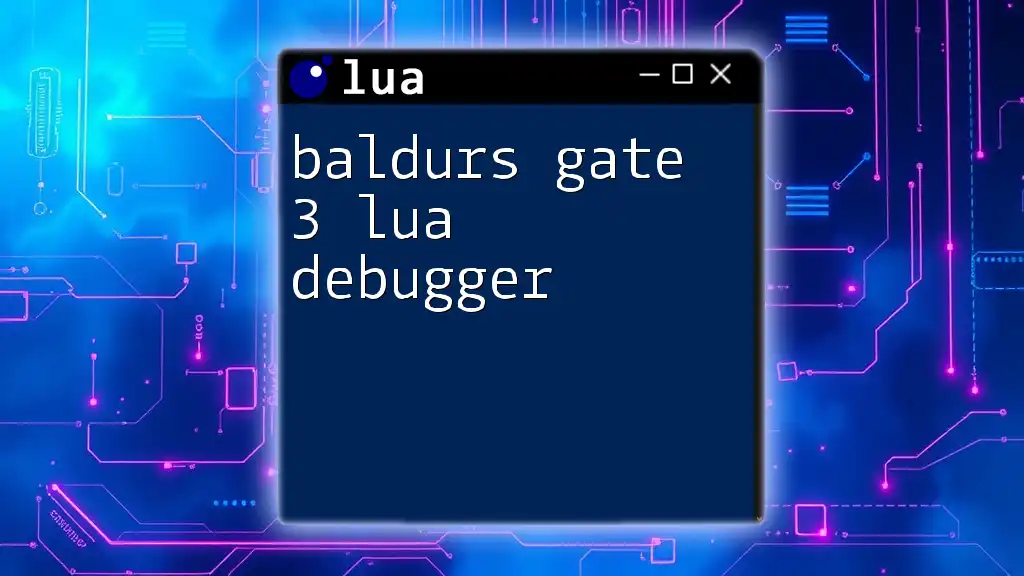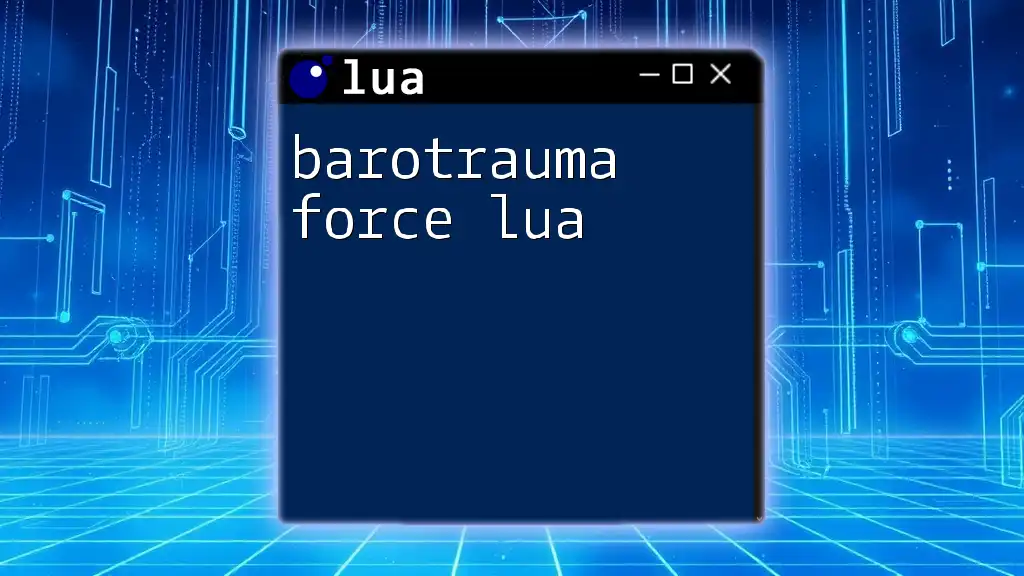To learn Lua for Roblox effectively, focus on mastering the foundational commands and scripting techniques that are essential for game development in the platform. Here's a basic example of a Lua script that creates a simple part in Roblox:
local part = Instance.new("Part")
part.Size = Vector3.new(4, 1, 2)
part.Position = Vector3.new(0, 10, 0)
part.Anchored = true
part.Parent = game.Workspace
What is Lua?
Lua is a powerful, efficient, lightweight scripting language specifically designed for embedded use in applications. It has gained immense popularity in the world of gaming, notably through its integration with Roblox. Key features of Lua include its clean and minimalistic syntax, flexibility, and efficiency, which make it an ideal choice for game development. Its ability to be easily embedded into other software means it can leverage the capabilities of the host application, enhancing its functionality without adding complexity.
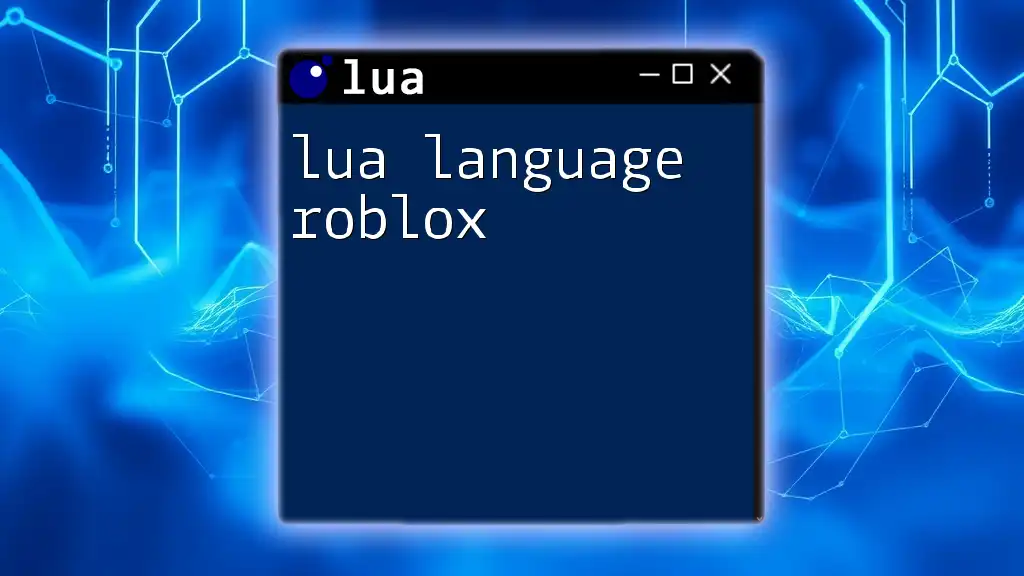
Getting Started with Roblox Studio
Setting Up Roblox Studio
To begin your journey into the world of Lua for Roblox, your first step is to download and install Roblox Studio. Simply visit the Roblox website, create an account if you don’t have one, and download Roblox Studio. Follow the installation prompts, and soon you'll find yourself with access to robust game-development tools.
Understanding the Workspace
Roblox Studio features a comprehensive user interface that integrates various essential panels. The Explorer panel allows you to navigate through aspects of your game, while the Properties panel provides information on selected objects including their attributes and behaviors. The Workspace is the central hub where all the 3D models and scripts reside, serving as the playground for your game development.
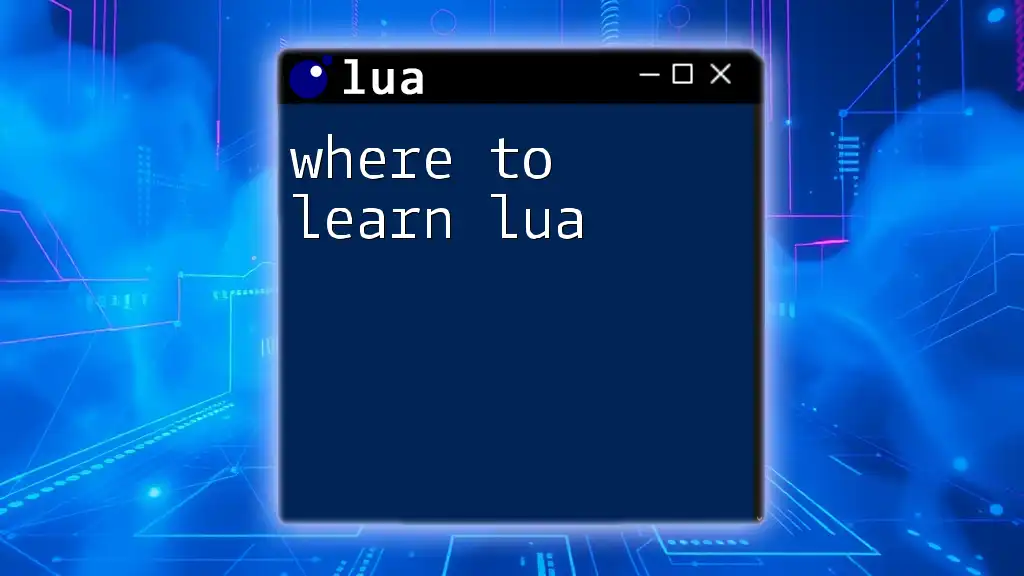
Basic Lua Syntax
Variables and Data Types
In Lua, variables are used to store information. You define a variable with the `local` keyword to limit its scope to the block in which it is declared.
Here’s a quick overview of some basic data types in Lua:
- Strings: Text enclosed in quotes.
- Numbers: Numeric values (integers or floats).
- Booleans: Represents truth values (`true` or `false`).
- Tables: The primary data structure used for storing groups of related data.
Here’s a code snippet demonstrating these data types:
local playerName = "Player1" -- String
local playerScore = 100 -- Number
local isPlaying = true -- Boolean
Operators
Lua provides a wide range of operators to perform mathematical and logical operations. These include arithmetic operators like `+`, `-`, `*`, `/`, and `%`, as well as logical operators like `and`, `or`, and `not`.
For example, using a comparison operator within a game script can help determine certain actions based on player performance:
if playerScore >= 100 then
print(playerName .. " has a high score!")
end
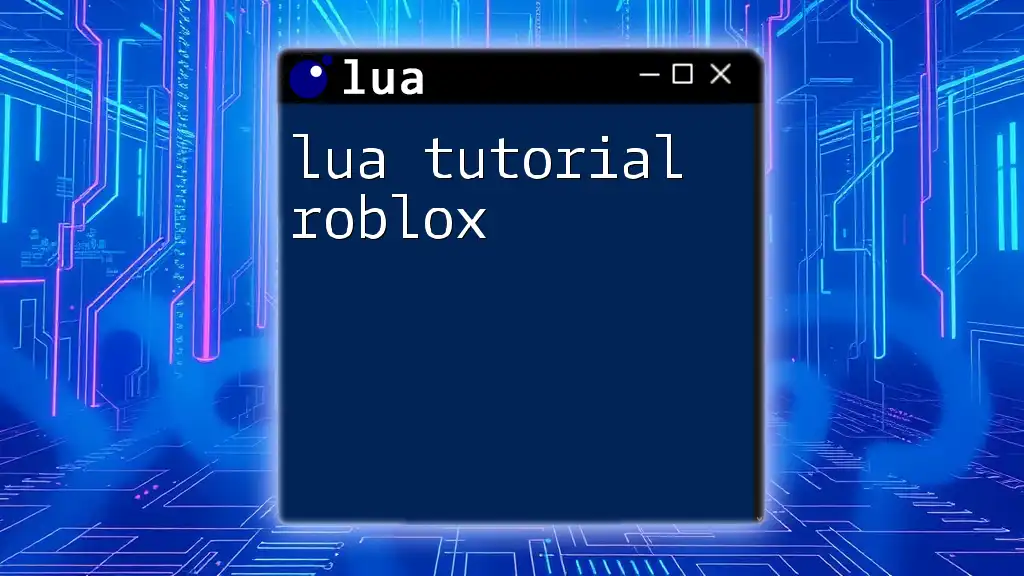
Control Structures
Conditionals
Control structures are essential for making decisions in your code. In Lua, the `if`, `else if`, and `else` statements allow you to execute different blocks of code based on certain conditions. This is crucial for gameplay dynamics, such as making choices that affect the game's narrative.
An example of using conditionals could look like this:
if isPlaying then
print(playerName .. " is playing.")
else
print(playerName .. " is not playing.")
end
Loops
Loops enable you to execute a block of code multiple times, which is especially useful for repetitive tasks in game development.
Two commonly used types of loops in Lua are the `for` loop and the `while` loop. The `for` loop is handy for iterating over a range of numbers:
for i = 1, 10 do
print("This is loop iteration number " .. i)
end
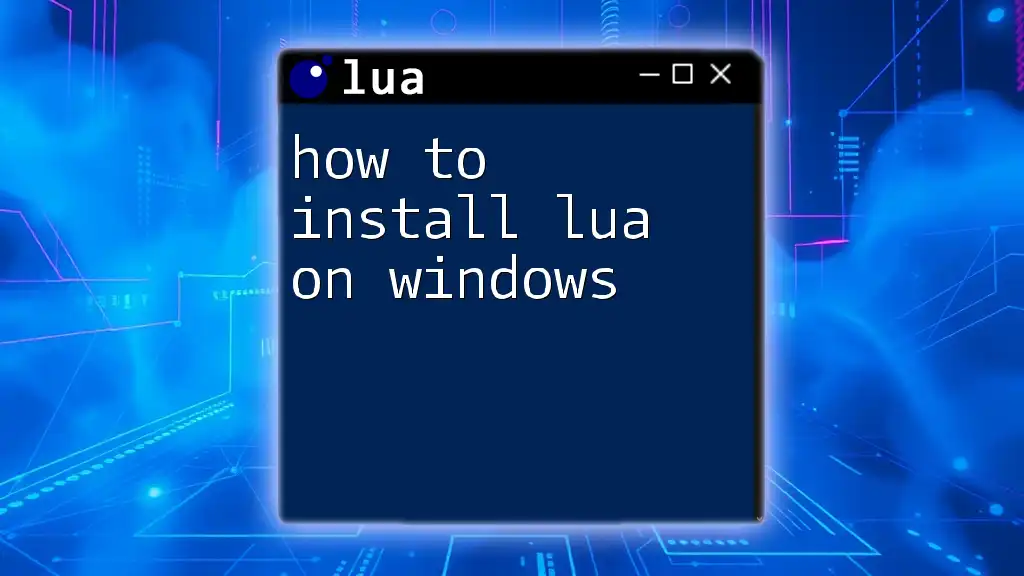
Functions in Lua
Defining and Calling Functions
Functions are a way to encapsulate blocks of code that perform a specific task, making your scripts organized and reusable. You can define a function using the `function` keyword, followed by its name and parameters.
Here’s an example of how to define a function and call it:
function increaseScore(score)
return score + 10
end
local newScore = increaseScore(playerScore)
print("New Score: " .. newScore)
Scope and Local Variables
In Lua, the scope of a variable determines where it can be accessed within your code. Using `local` inside a function restricts its visibility to that function, which is important for managing variable states and preventing conflicts.
For example:
function updatePlayer(player)
local playerHealth = 100
print(player .. " has " .. playerHealth .. " health.")
end
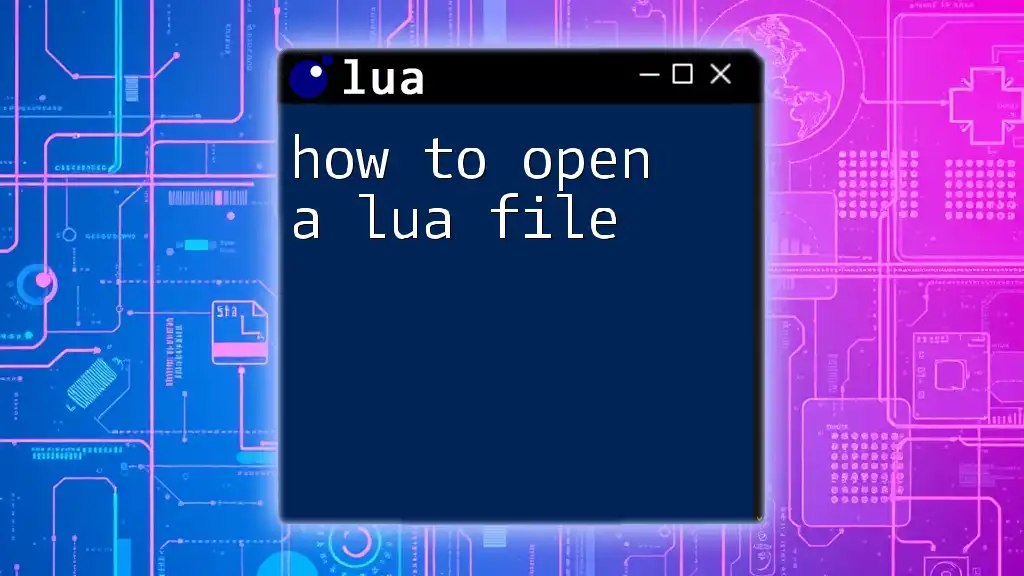
Working with Events and User Input
Understanding Events in Roblox
Events are a core aspect of creating an interactive game in Roblox. They allow scripts to respond to various actions that occur during gameplay, such as when a player touches an object, jumps, or dies.
Handling User Input
Receiving real-time user input is crucial for any interactive game. You can handle events like key presses and mouse clicks using in-built event listeners. For instance, you can connect a function to a player’s character death event:
local player = game.Players.LocalPlayer
player.Character.Humanoid.Died:Connect(function()
print(player.Name .. " has died.")
end)
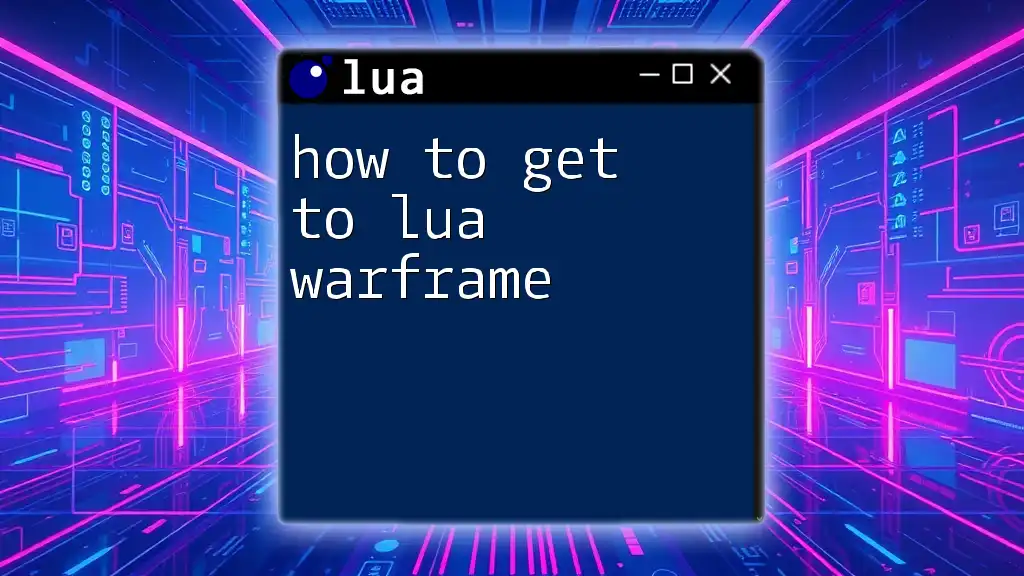
Debugging Lua Scripts in Roblox
Common Errors and How to Fix Them
As you begin scripting, you will inevitably encounter errors. Common mistakes include syntax errors, such as forgetting an `end` statement, or runtime errors, where your script fails during execution.
Using Output Panel
Roblox Studio’s output panel is an invaluable tool for debugging. It logs all output, including print statements and error messages, helping you identify problems in your code. Best practices include using print statements to track code execution flow and identify where an error may have occurred.
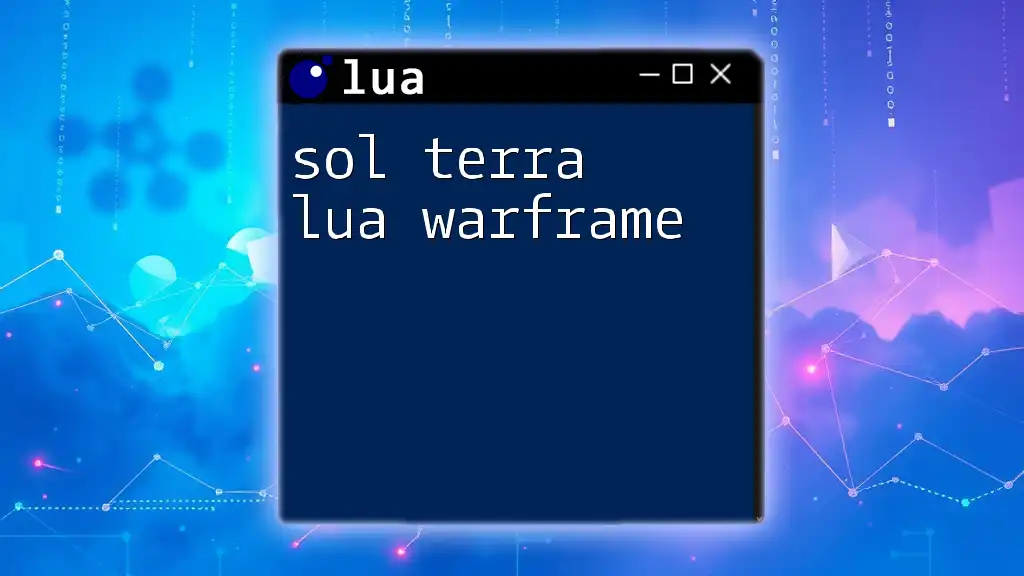
Resources for Learning Lua for Roblox
To further enhance your skills, consider diving into several excellent resources, including:
- Online Tutorials: Websites like Codecademy or Udemy offer comprehensive Lua courses.
- YouTube Channels: Look for channels dedicated to Roblox game development.
- Documentation: Roblox’s developer hub is a treasure trove of information, best practices, and official documentation.
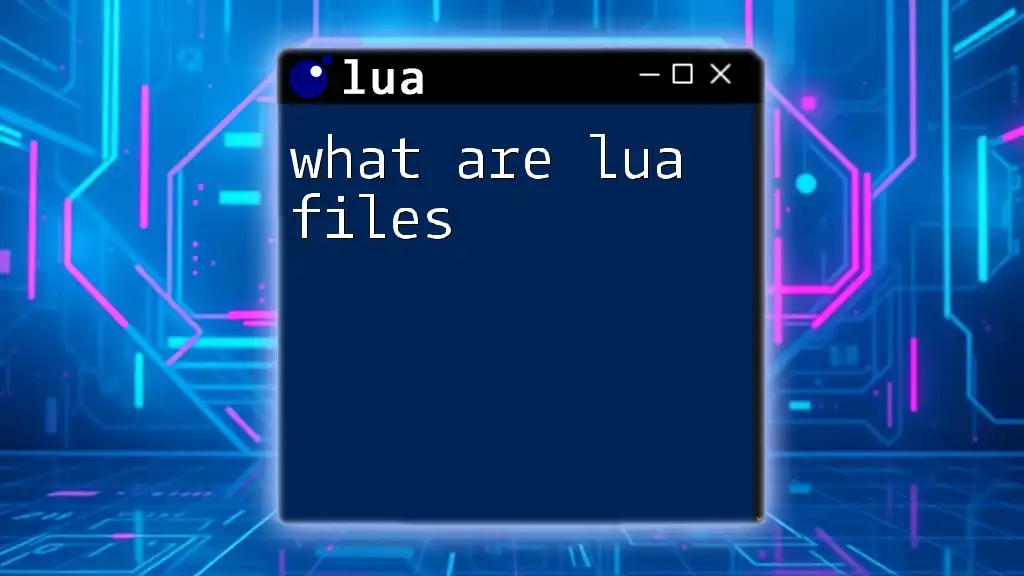
Conclusion
Learning Lua for Roblox is not just about acquiring technical skills; it's about embracing a creative journey where you can bring your ideas to life. By immersing yourself in scripting, practicing regularly, and leveraging the resources available, you will quickly find your footing in game development. The possibilities are endless. Start crafting your unique Roblox experience today!
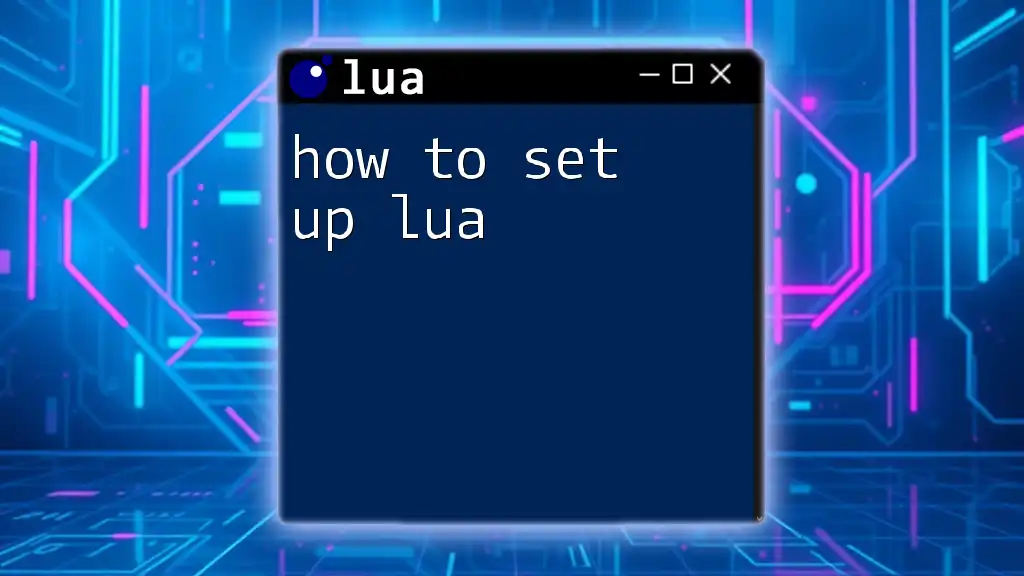
Call to Action
Are you ready to take the next step in mastering Lua for Roblox? Join our training program for structured lessons, hands-on projects, and community support. Together, we can bring your game development dreams to life!

